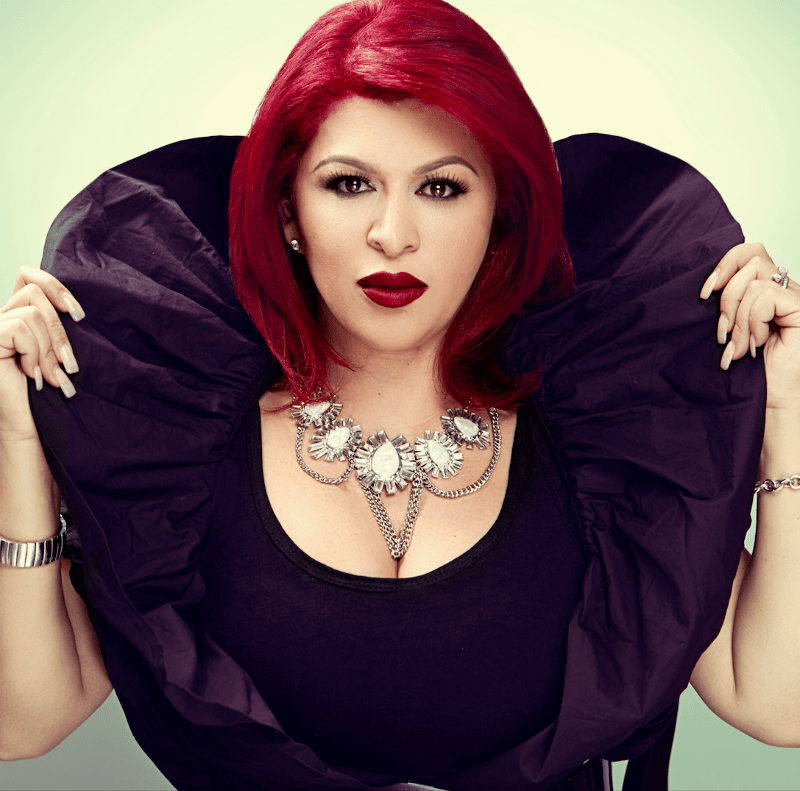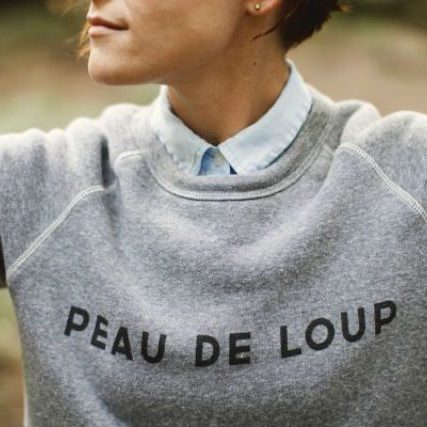 Self-made style educator Ruby Polanco.
Self-made style educator Ruby Polanco.
The road from Honduras to Hollywood-style glamour is more than a couple of thousand miles. Ruby Polanco has traveled the distance—and then some. Polanco, who left an unhappy marriage, earned a B.A. degree, and worked as a realtor during the boom and bust, reinvented herself as a beauty maven after it occurred to her that cosmetics lines did not target Hispanic women.
“We love color and heavy makeup, and we love to spend money, even though we are a poor community,” she says. “But we have money to spend on anything that makes us look better. It all started with the need for creating colors for the Hispanic community and then I realized there was a big need for education. And so the idea of creating a makeup school was born.”
Today, the Ruby Makeup Academy has three branches in Southern California, has grown into a $2.5 million dollar enterprise in less than 10 years, and was named as one of Inc. Magazine’s 2014 Top 500 Fastest Growing Private Owned Companies in America. The Academy offers courses in beauty, fashion and special effects—but Polanco’s enterprise is more than skin deep. For her, looking better is connected to feeling better—and doing better out there in a hard knocks world.
“You can use makeup to transform yourself into whatever you want to be on a daily basis,” says Polanco. “Girly, sensual, powerful, the mom, the wife. I see makeup as transformation. For me, makeup just shows how I feel inside.”
Polanco believes that when a prospective student walks through the doors of the Academy it’s partly to learn the art of applying makeup; but mostly, it’s to find herself. After she graduates she feels “so confident, so strong, like she has a future. As women we’re so insecure,” she says.
“30 minutes in the chair doing your makeup is like 30 minutes at the gym—you feel taller, stronger, faster, when you’re done with your makeup and hair. You know you’ll do good that day, that you can get things done. My makeup routine is definitely as important as my 30 minutes on the treadmill.”
And the Ruby Makeup Academy is not just for straight Latinas. Queer femmes are drawn to it, too. “Whenever I am in a room with Ruby Girls—that’s what we call our graduates—I’d say about 15 to 20 percent are gay. Lately, we’ve been having some parties and a lot of the girls are showing up with their girlfriends, so yes, a lot of my girls are either gay or bisexual.”
Being out to her students is important to Polanco. “I am very feminine, so people never realized I was gay, I never promoted it. But around two years ago I started to post photos on social media of me with my wife. Some parents don’t like [that I am gay], so people need to know from the beginning that I am gay.”
Since she has begun to include her personal life on social media, Polanco estimates acceptance of her has increased. And in turn, Polanco, who is 42, sees a greater acceptance of makeup within the lesbian community, which used to be, for the most part, beauty averse.
“My wife Trish, who is 53, is more butch: short hair, most of the time she doesn’t wear makeup. But when we go out to events, she does. It’s part of her look.
“The Ruby community is 18 to 30 and loves makeup. I think the new community of lesbians is actually into fashion, they are into looking good, and even if they don’t wear heavy makeup, they do like to wear lighter makeup, like Ellen DeGeneres, to look good. So I think it’s changing for sure.”
Makeup can be a tool, says Polanco, to proudly display your interior strength to the world. “If you’re changing careers and going for a new job, you get ready for the interview, or for the company.
You look the part, and you try to be the part. It all starts with how you walk through that door, the way you look, the way you are. Hiring a new person is a bit like falling in love. You look at that person and you’re like, ‘They’re it’.
Before we even say hello we automatically know if we like them or not—like a date. Pay attention to making the first impression a good one,” advises Ruby. “Match the personality of the company. Make sure that your exterior matches your interior.”
And Polanco has taken her own advice. When she came out to her mother she received some resistance. How could someone like her be gay? In Honduras, when she was a little girl, Polanco heard her grandmother, who was ordinarily a kind and loving person, “use the nastiest words, words I had never heard before, if she ever saw a lesbian, or someone who looked like a lesbian.”
But still, Polanco was not afraid to come out. She had no other choice. “It was my life. I was willing to lose my whole family to be my authentic self, but I didn’t have to. It is okay to live your life the way you want with who you want,” she says.
Now, her exterior matches her interior, and marriage equality also manifests what is, for Polanco and for many of us, true and real. “To get married makes such a difference. After going through the process, something changes. Something within us—we feel validated, we exist, we are real, our love is real. We have the same rights as everybody else.”

